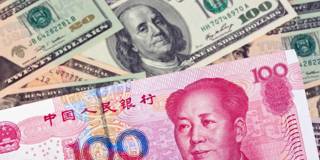Even as official financial decoupling progresses, US and other financial firms are – with China’s blessing – building asset management, securities, life insurance, fintech, and custody businesses in the Chinese market. Should President-elect Joe Biden's administration support this process or double down on decoupling?
OXFORD – Relations between the United States and China are at perhaps their lowest ebb since they were normalized in 1979. Yet, when it comes to finance, competition is only part of the story. While the US government is pursuing financial sanctions against China, American financial firms are lining up to do more business there – and China is more than happy to welcome them. Will this disconnect persist under President-elect Joe Biden?
Over the last four years, US President Donald Trump’s administration has often employed financial levers in its clash with China. For example, it has taken action to block federal government pension plans from investing in Chinese equities, and enacted sanctions against Chinese officials in Xinjiang Province (over human-rights violations) and Hong Kong (over the mainland government’s introduction of draconian national security legislation).
Trump also recently signed an executive order banning investments by US residents in 31 Chinese companies deemed to be aiding the modernization of the People’s Liberation Army. And, earlier this month, he signed the Holding Foreign Companies Accountable Act, which requires publicly traded foreign firms to comply with US auditing rules within three years or be delisted.

OXFORD – Relations between the United States and China are at perhaps their lowest ebb since they were normalized in 1979. Yet, when it comes to finance, competition is only part of the story. While the US government is pursuing financial sanctions against China, American financial firms are lining up to do more business there – and China is more than happy to welcome them. Will this disconnect persist under President-elect Joe Biden?
Over the last four years, US President Donald Trump’s administration has often employed financial levers in its clash with China. For example, it has taken action to block federal government pension plans from investing in Chinese equities, and enacted sanctions against Chinese officials in Xinjiang Province (over human-rights violations) and Hong Kong (over the mainland government’s introduction of draconian national security legislation).
Trump also recently signed an executive order banning investments by US residents in 31 Chinese companies deemed to be aiding the modernization of the People’s Liberation Army. And, earlier this month, he signed the Holding Foreign Companies Accountable Act, which requires publicly traded foreign firms to comply with US auditing rules within three years or be delisted.